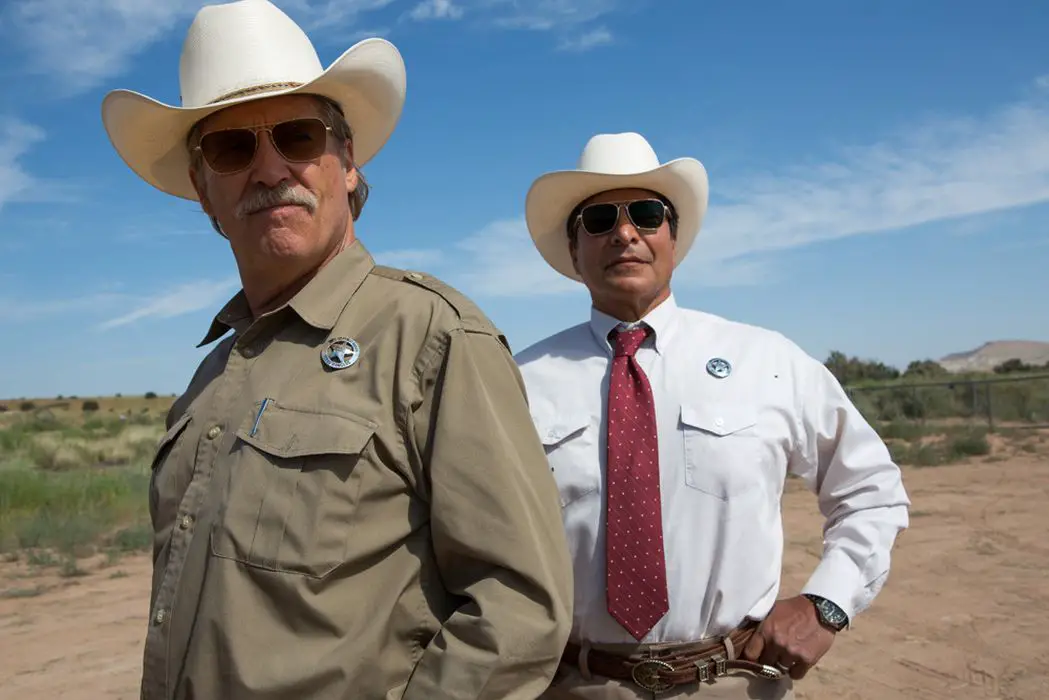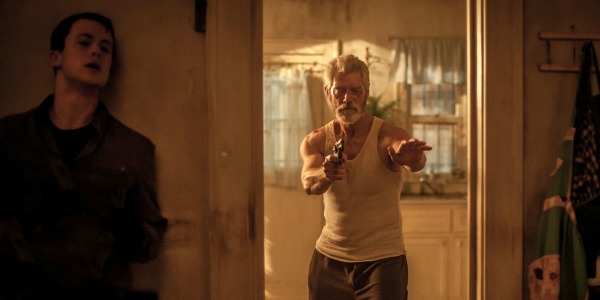President Trump: Did American Cinema In 2016 Foreshadow His Rise to Power?

Alistair is a 25 year old writer based in Cambridge.…
After the electoral successes of Brexit and Donald Trump in 2016, political pundits have been left confused as to how these right-wing, populist movements on both sides of the Atlantic could defy the political odds. For all the think pieces churned out in the months since, alleging everything from class divides to the cultural differences between urban and comparatively rural areas as being the deciding factor in the vote, it is somewhat surprising cultural commentators haven’t looked towards cinema as an influencer.
In the months leading up to each vote, many blockbusters and independent films on both sides of the Atlantic echoed sentiments that coincided with the promises of each campaign. For all the talk of the entertainment industry being one of the most liberal employers, many recent films have subtly embedded the rhetoric of the populist right into their storylines and characterisations – and in comparison, high profile films with more nakedly liberal attitudes have become sizeable flops in the year of Drumpf.
The inauguration of the 45th President doesn’t mark the end of Obama-era cinema. In fact, as is the case with many films released under his presidency, his message of “hope” was undermined by blockbusters increasingly portraying dystopian visions of America. Is there any wonder why a fear-based campaign has proved so fruitful?
An inevitable populism?
It has been noted that many fringes of the alt-right movement have used terms popularised by pop culture to spread their nationalistic messages. They have talked about indoctrinating new recruits by giving them the “red pill”- a reference to The Matrix that falls flat on the clear basis that a film directed by two then-closeted transgender women was hardly going to be preaching hard right philosophy. They have also seized use of the nothing term “snowflake” as a pejorative insult towards liberals, as a reference to David Fincher’s adaptation of Fight Club. Again, the irony of them taking a satire on fascism at face value and unashamedly embracing its terminology hasn’t gone unnoticed.
Unintentionally, these are the two films most commonly associated with Trump’s hard right followers – but neither of them represent the more earnest ideologies that led to him getting elected, which can be seen clearly in more recent releases.
At the time of writing, the highest grossing film of 2016 remains Captain America: Civil War. In Marvel’s latest blockbuster, the Avengers become divided due to the publication of the “Sokovia Accords”- a document that asks for the UN to control the team. Our hero is strongly against being regulated and, in a character detail that should feel worryingly familiar, trusts his own judgement more than the experts who are in place to stop international collateral damage.
By the end of the film, he is proved to be increasingly in the right frame of mind; Tony Stark, the billionaire whose celebrity in the Marvel universe previously had more close alignment to Donald Trump, has developed a guilt complex and wants to conform to authority – and the movie increasingly paints him in a negative light as it progresses. With the political context applied, the battle between Captain America and Iron Man becomes a battle between a “common sense” patriot and a globalist elitist, as much as it is a battle between two superheroes.

Captain America: Civil War isn’t the only caped crusader blockbuster that has flirted with right wing ideologies this year. Both Batman v Superman: Dawn of Justice and Suicide Squad were box office hits despite (or perhaps because of?) themes many commentators could recognise as being openly illiberal. From portraying a borderline dystopian America that seemed to be ripped out of Trump’s imagination as to what an “inner city” looks like, to the altering of characterisations to make all female characters inferior and all male characters develop a nihilistic attitude towards committing violent acts (including many sexual ones, as alluded to in Suicide Squad), these films replaced all the fun of superhero movies with a joyless dirge that aspired towards social commentary.
The overlong mess of Dawn of Justice even included various irrelevant sequences where Lois Lane visited a terrorist group who were clearly a fictitious version of ISIS; it added nothing to the plot, aside from a superhero defeating a real and prevalent terrorist threat, designed to chime with viewers, as a presidential candidate made waves promising exactly that.
An outsider’s view of the USA
If blockbusters reflected the fear and anxiety felt by America during a time of existential crisis, it was independent films that more accurately tapped into what would persuade anybody to vote for the tiny-handed demagogue. Interestingly, the three films that performed this most successfully were directed by filmmakers from different continents entirely.
David Mackenzie’s Hell or High Water may adapt a screenplay dating back to 2012, but its portrayal of financial desperation in a right-leaning state couldn’t have felt more prescient than when it was released in the dog days of summer. Following a Democratic convention when Hillary Clinton enjoyed a month-long lead in opinion polls, Mackenzie’s film showed that towards the end of the Obama era, there was no chance the poorest in society would vote for a Democratic candidate that the right wing press viewed as being in the pockets of Wall Street.

The film doesn’t aspire to political commentary, instead making the commendable decision to humanise characters who would be portrayed as redneck archetypes in a less sensitive film. The characters played by Chris Pine and Ben Foster are without jobs and possess significant financial responsibilities – they are the victims of a society that has left them and the small West Texas towns in which they reside far behind. It is easy to pretend that the only people who voted Republican in the last election are white nationalists, but a film like Hell or High Water proves that the reality is more complex.
Another British filmmaker who excelled at documenting financial desperation in the Rust Belt is Andrea Arnold, whose fourth feature American Honey followed a “mag crew”, travelling across middle America selling magazine subscriptions door to door. At first glance, they don’t look the type to vote Republican; they loudly blast hip hop music through their speakers, as well as possessing less than conservative views towards issues such as sex and religion. But like Hell or High Water, the economic desperation is thick in the air – at one point, our protagonist Star (played by newcomer Sasha Lane) even prostitutes herself for some extra money.
Like MacKenzie‘s film, American Honey is refreshing in that it doesn’t judge this behaviour, instead portraying it as a natural symptom of a generation lacking financial security. It may have been made before the threat of a Trump era of politics became tangible, but it is thematically wedded to the ideologies that led to his rise – both a blessing and a curse for a social realist, left-wing filmmaker like Arnold. That Shia LaBeouf’s character at one point compares himself favourably to Donald Trump only adds to the political foreshadowing.
A great year for horror – in cinema and in the headlines
2016 was widely regarded as a resurgent year for horror cinema, but it was the home invasion horror Don’t Breathe that felt most timely – not least because it tapped into the very same sense of financial desperation. As a genre film, the social commentary takes a backseat to the unrelenting tension and liberally applied violence – but the commentary is there and feels undeniably satirical, especially coming from a South American writer/director, in this case Fede Alvarez.
The film follows three young criminals who attempt to break into a blind war veteran’s house in order to steal the sizeable amount of money hidden away. The film turns stereotypes on their head by making the war veteran the antagonist and the financially desperate “forgotten people” of America our heroes – with the exception of the one Latino thief, who is portrayed unfavourably throughout, a decision which makes this more in line with Trump’s rhetoric than the previous two independent films referenced.

In a year when Trump mocked multiple war veterans and people with disabilities at his rallies, it feels oddly timely for the villain in a horror movie to tick both those boxes. Don’t Breathe is a fun horror movie, that manages to portray the incoherent offensiveness of Trump-era America despite a lack of any overtly political content or context whatsoever.
Conclusion
There were plenty of great films in 2016 that alluded to a more positive future for America, with notable titles including the racism parable Zootopia and the geo-political science fiction film Arrival. But these titles and many more felt like escapist fantasies after a fruitful year for right wing populism that has left the Western world feeling more divided than ever.
Now that films are being written and produced in the Trump era, the social commentary is likely to be angrier and more overt – and none of them will dare document how we ended up in this situation with a shred of empathy, like the films listed above.
Are there any movies I’ve missed out of this analysis of Trump-era cinema?
Does content like this matter to you?
Become a Member and support film journalism. Unlock access to all of Film Inquiry`s great articles. Join a community of like-minded readers who are passionate about cinema - get access to our private members Network, give back to independent filmmakers, and more.
Alistair is a 25 year old writer based in Cambridge. He has been writing about film since the start of 2014, and in addition to Film Inquiry, regularly contributes to Gay Essential and The Digital Fix, with additional bylines in Film Stories, the BFI and Vague Visages. Because of his work for Film Inquiry, he is a recognised member of GALECA, the Gay & Lesbian Entertainment Critics' Association.













